Audi Q5 vs Hyundai Kona – Differences & prices compared
Compare performance, boot space, consumption and price in one view.
Find out now: which car is the better choice for you – Audi Q5 or Hyundai Kona?
The Audi Q5 (SUV) comes with a Diesel MHEV, Petrol MHEV or Plugin Hybrid engine and Automatic transmission. In comparison, the Hyundai Kona (SUV) features a Petrol, Full Hybrid or Electric engine with Manuel or Automatic transmission.
When it comes to boot capacity, the Audi Q5 offers 520 L, while the Hyundai Kona provides 466 L – depending on how much space you need. If you’re looking for more power, decide whether the 367 HP of the Audi Q5 or the 218 HP of the Hyundai Kona suits your needs better.
In terms of consumption, the values are 2.50 L per 100 km for the Audi Q5, and 14.60 kWh4.50 L for the Hyundai Kona.
Price-wise, the Audi Q5 starts at 44800 £, while the Hyundai Kona is available from 23100 £. Compare all the details and find out which model fits your lifestyle best!
Audi Q5
The Audi Q5 exudes a perfect blend of luxury and performance, making it a standout in the competitive SUV market. Its elegant design is complemented by a spacious and meticulously crafted interior, providing both comfort and functionality for drivers and passengers alike. With advanced technology and a range of powerful engines, the Q5 effortlessly combines driving pleasure with practicality for everyday use.
details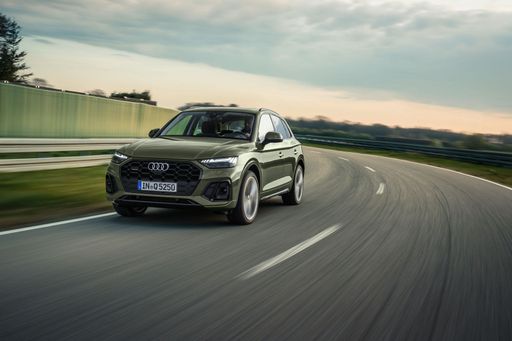 @ audi-mediacenter.com
@ audi-mediacenter.com
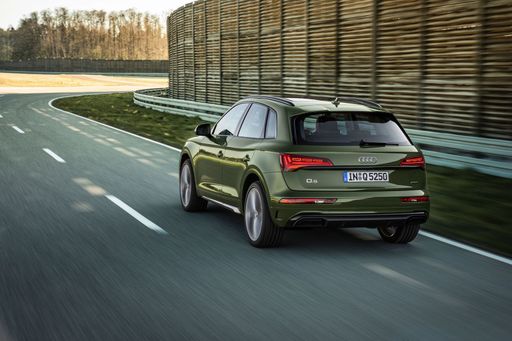 @ audi-mediacenter.com
@ audi-mediacenter.com
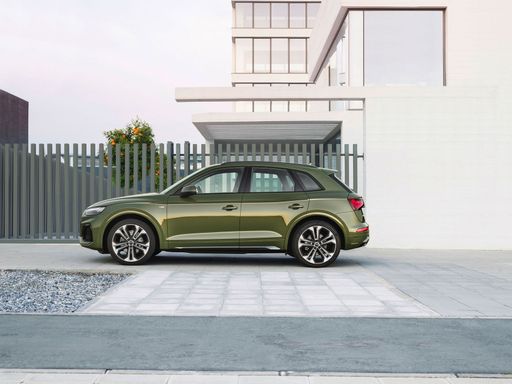 @ audi-mediacenter.com
@ audi-mediacenter.com
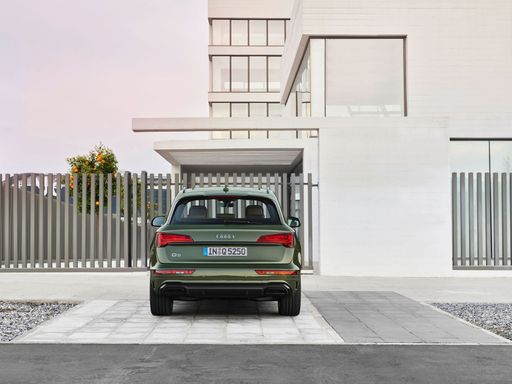 @ audi-mediacenter.com
@ audi-mediacenter.com
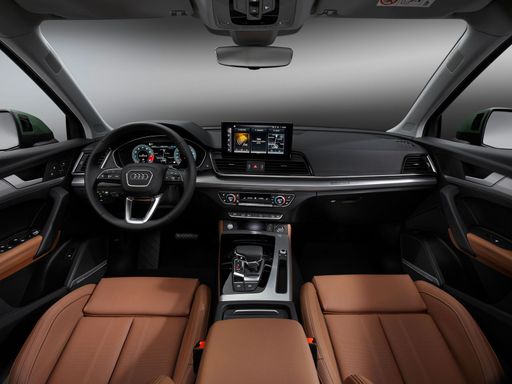 @ audi-mediacenter.com
@ audi-mediacenter.com
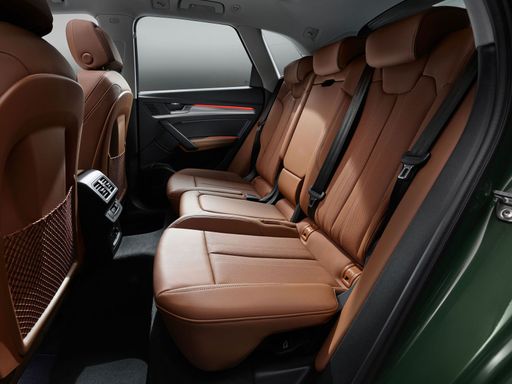 @ audi-mediacenter.com
@ audi-mediacenter.com
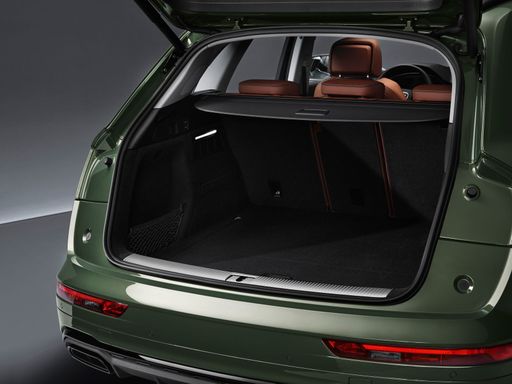 @ audi-mediacenter.com
@ audi-mediacenter.com
Hyundai Kona
The Hyundai Kona blends a bold design with a versatile interior, making it a standout choice in the compact SUV market. Its crisp handling and responsive steering provide an engaging driving experience, whether in the city or on the open road. The vehicle also offers a range of features designed to enhance comfort and connectivity, ensuring a pleasurable journey for both driver and passengers.
details @ hyundai.news
@ hyundai.news
 @ hyundai.news
@ hyundai.news
 @ hyundai.news
@ hyundai.news
 @ hyundai.news
@ hyundai.news

|

|
|
|
|
Costs and Consumption |
|
|---|---|
|
Price
44800 - 78900 £
|
Price
23100 - 41600 £
|
|
Consumption L/100km
2.5 - 8.3 L
|
Consumption L/100km
4.5 - 6.9 L
|
|
Consumption kWh/100km
-
|
Consumption kWh/100km
14.6 - 16.8 kWh
|
|
Electric Range
92 - 100 km
|
Electric Range
377 - 514 km
|
|
Battery Capacity
20.70 kWh
|
Battery Capacity
1.3 - 65.4 kWh
|
|
co2
56 - 189 g/km
|
co2
0 - 157 g/km
|
|
Fuel tank capacity
55 - 65 L
|
Fuel tank capacity
38 - 47 L
|
Dimensions and Body |
|
|---|---|
|
Body Type
SUV
|
Body Type
SUV
|
|
Seats
5
|
Seats
5
|
|
Doors
5
|
Doors
5
|
|
Curb weight
1910 - 2245 kg
|
Curb weight
1370 - 1773 kg
|
|
Trunk capacity
433 - 520 L
|
Trunk capacity
466 L
|
|
Length
4717 mm
|
Length
4350 - 4385 mm
|
|
Width
1900 mm
|
Width
1825 mm
|
|
Height
1647 - 1656 mm
|
Height
1580 - 1585 mm
|
|
Payload
490 - 565 kg
|
Payload
420 - 490 kg
|
Engine and Performance |
|
|---|---|
|
Engine Type
Diesel MHEV, Petrol MHEV, Plugin Hybrid
|
Engine Type
Petrol, Full Hybrid, Electric
|
|
Transmission
Automatic
|
Transmission
Manuel, Automatic
|
|
Transmission Detail
Dual-Clutch Automatic
|
Transmission Detail
Manual Gearbox, Dual-Clutch Automatic
|
|
Drive Type
All-Wheel Drive, Front-Wheel Drive
|
Drive Type
Front-Wheel Drive, All-Wheel Drive
|
|
Power HP
204 - 367 HP
|
Power HP
100 - 218 HP
|
|
Acceleration 0-100km/h
4.5 - 8.6 s
|
Acceleration 0-100km/h
7.8 - 13.3 s
|
|
Max Speed
226 - 250 km/h
|
Max Speed
162 - 208 km/h
|
|
Torque
340 - 550 Nm
|
Torque
200 - 265 Nm
|
|
Number of Cylinders
4 - 6
|
Number of Cylinders
3 - 4
|
|
Power kW
150 - 270 kW
|
Power kW
74 - 160 kW
|
|
Engine capacity
1968 - 2995 cm3
|
Engine capacity
998 - 1598 cm3
|
General |
|
|---|---|
|
Model Year
2025
|
Model Year
2024
|
|
CO2 Efficiency Class
F, E, G, B
|
CO2 Efficiency Class
D, C, E, F, A
|
|
Brand
Audi
|
Brand
Hyundai
|
Audi Q5
The Audi Q5 stands as a prominent figure in the luxury SUV segment, combining elegant design with cutting-edge technology and efficient performance. As of its latest models, the Q5 continues to impress with a multitude of engine options, including mild-hybrid and plug-in hybrid variants, catering to a range of driving preferences and environmental considerations.
Dynamic Performance and Engine Innovation
At the heart of the Q5’s appeal lies its impressive powertrain offerings. The range includes both diesel and petrol engines, featuring advanced mild-hybrid technology, which enhances efficiency and performance. The integration of the mild-hybrid system allows for reduced fuel consumption and lower CO2 emissions without compromising on power. With outputs ranging from 163 to 367 PS, the Q5 offers an exhilarating driving experience, whether purists opt for the robust diesel engines or the spirited petrol variants.
Impressive Fuel Economy
One of the standout features of the Audi Q5 is its remarkable fuel efficiency. With fuel consumption figures as low as 1.5 L/100km for the plug-in hybrid models, the Q5 sets a benchmark in its class. Coupled with a spacious fuel tank that can hold between 54 and 70 litres, drivers can enjoy extended journeys without frequent refueling stops. Even the conventional engines maintain competitive efficiency, making the Q5 an excellent option for eco-conscious consumers.
Advanced Safety and Driver Assistance Technologies
The Q5 is equipped with an array of advanced safety features and driver assistance systems that enhance the driving experience. Technologies such as adaptive cruise control, lane departure warning, and collision avoidance systems provide an additional layer of security for both driver and passengers. Furthermore, the Q5's infotainment system is intuitive and user-friendly, featuring connectivity options that keep you seamlessly connected on the road.
Luxurious Interior and Comfort Features
Step inside the Audi Q5, and you will immediately be captivated by its sophisticated cabin that boasts high-quality materials and attention to detail. The spacious interior comfortably seats five passengers, providing ample head and legroom. The rear seats can be adjusted to enhance cargo space, with boot capacity ranging from 455 to 520 litres, perfect for family outings or road trips. High-end audiovisual systems and customizable ambient lighting contribute to an atmosphere of luxury that Audi is renowned for.
All-Wheel Drive Versatility
Equipped with Audi's legendary quattro all-wheel drive system, the Q5 delivers exceptional grip and handling across various terrains and weather conditions. This capability ensures that drivers can have confidence whether navigating urban environments or venturing off the beaten path. The front-wheel drive variants also offer a commendable driving performance while maintaining efficiency.
Conclusion: The Ultimate Luxury SUV
The Audi Q5 is a masterful combination of luxury, performance, and practicality. With its range of powerful and efficient engines, advanced technology, and a focus on driver and passenger comfort, the Q5 sets itself apart in the crowded SUV market. Whether for commuting, family trips, or weekend getaways, the Q5 is designed to meet diverse needs and preferences with style and sophistication.
Hyundai Kona
The Hyundai Kona: A Comprehensive Overview
The Hyundai Kona has established itself as a standout in the compact SUV segment, blending innovation with performance and style. As the automotive world moves towards more sustainable and efficient options, the Kona offers a variety of powertrains, from traditional petrol engines to full hybrids and all-electric models.
Powertrain Options and Performance
The Hyundai Kona's powertrain choices cater to a wide range of preferences. For petrol enthusiasts, the Kona offers a 1.0L T-GDI engine, delivering 100 PS, and a more robust 1.6L T-GDI variant with up to 170 PS. Those looking for efficiency without sacrificing power can consider the full hybrid model, offering 129 PS and an impressive consumption of 4.5 L/100km.
For a greener option, the all-electric Kona provides a compelling case. With battery capacities of up to 65.4 kWh, the electric Kona offers power outputs of 156 to 218 PS, and efficiencies as low as 14.6 kWh/100km, enabling an electric range of up to 513 km.
Technical Specifications and Innovations
Built on a robust platform, the Kona delivers versatility and reliability. With a choice between manual or dual-clutch automatic gearboxes, along with options for front-wheel or all-wheel drive, the Kona ensures a tailored driving experience. The handling is enhanced by the car's lightweight construction, balancing a 1370 to 1773 kg curb weight with dynamic performance.
The Kona's design doesn't compromise cargo space for style; it offers a generous 466 L boot capacity. With a relatively compact body, measuring 4350 to 4385 mm in length, the Kona easily navigates urban environments while still commanding a strong road presence with its 1825 mm width.
Efficiency and Eco-Friendliness
Hyundai is committed to reducing emissions, as evidenced by the Kona's CO2 efficiency ratings, which range from class A for electric models to class D for some higher-performance petrol variants. The focus on reducing environmental impact without sacrificing driving pleasure is notable throughout the Kona range.
Costing and Value
The Hyundai Kona offers commendable value for money. Pricing starts at €26,400 and reaches up to €50,690, depending on the chosen configuration. The monthly running costs range from €956 to €1090, with a cost per kilometre of 38.3 to 43.6 cents, making it a competitive option in its class.
Conclusion: Modern, Efficient, and Versatile
The Hyundai Kona stands as a testament to Hyundai's commitment to innovation, efficiency, and practicality. Whether you are inclined towards a traditional combustion engine, a hybrid for a balance of power and efficiency, or a full electric model for maximum eco-friendliness, the Kona provides a tailored solution for each unique driver preference.
Which drive types are available for the Audi Q5?
Available as All-Wheel Drive or Front-Wheel Drive.
The prices and data displayed are estimates based on German list prices and may vary by country. This information is not legally binding.
